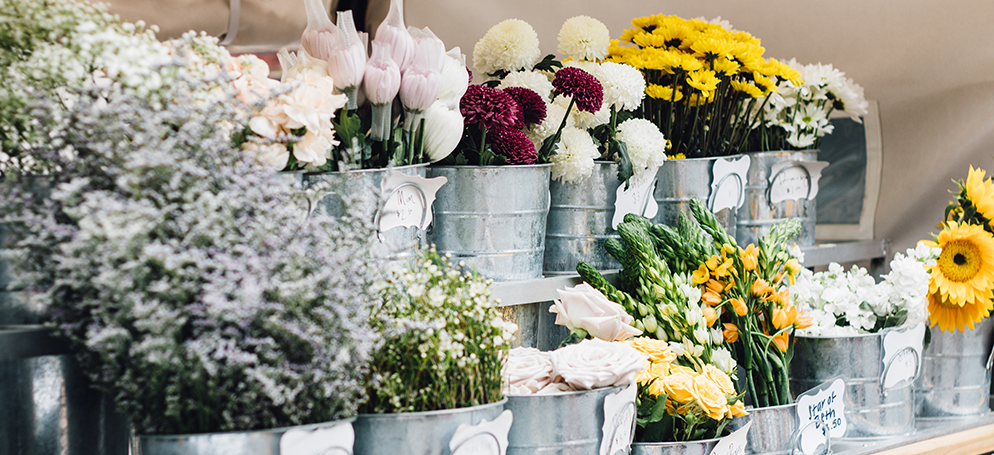Download now: Oban’s guide to crafting effective B2B personas in 2024
Our guide dives deep into how the pandemic has reshaped buyer behaviours and why understanding these shifts is more critical than ever.

Mother’s Day, which happened last Sunday in the UK, is a critical date in the UK retail calendar, with shoppers spending £1.4 billion in 2017 according to GlobalData.
In the US, where Mother’s Day falls on 13 May this year, spending in 2017 reached a high of $23.6bn with 78% of consumers purchasing cards, followed closely by flowers 69% ($2.6bn) and special outings amounting to $4.2bn.
Liberis predicts global spending on Mother’s Day to increase by over £5bn in 2018, so this is a key date for international e-commerce.
Mothers certainly deserve our recognition, but when and how we celebrate their brilliance varies around the world, so it’s necessary to plan your marketing strategy to meet local expectations and behaviours. Mother’s Day is a perfect hook to create targeted marketing campaigns directly related to the e-commerce opportunities of each country’s celebration.
Every country celebrates mothers differently and understanding the global calendar will help you plan your international marketing strategy effectively and ensure you only promote products appropriate for each celebration. We’ve picked out some highlights below to get you started. And remember, although in most countries Mother’s Day happens on a single day, preparations in many cultures begin weeks before, making an integrated push across a country’s online, social and mobile platforms essential.
A large proportion of the world celebrates Mother’s Day on one date. Countries celebrating mums on the 13th May in 2018 include: Anguilla, Aruba, Australia, Austria, Bahamas, Bangladesh, Barbados, Belgium, Belize, Bermuda, Bonaire, Brazil, Canada, Chile, China, Colombia, Croatia, Cuba, Curaasao, Czech Republic, Ecuador, Estonia, Finland, Germany, Greece, Grenada, Honduras, Hong Kong, Iceland, India, Italy, Jamaica, Japan, Latvia, Malaysia, Malta, New Zealand, Peru, Philippines, Puerto Rico, Singapore, Slovakia, South Africa, Suriname, Switzerland, Taiwan, The Netherlands, Trinidad and Tobago, Turkey, United States, Uruguay, Venezuela, and Zimbabwe.
In most Arab countries, Mother’s Day occurs on 21st March. Known as Yaum ul-umm in Arabic, it transpires across the Palestinian Territories, the Gulf, Egypt, Saudi Arabia, Jordan, Syria, Libya and Sudan. Much like in the Western world, mothers receive gifts such as flowers and chocolates.
If you’re targeting Saudi Arabian e-commerce customers, ensure you optimise for mobile. An incredible 71% of Saudis make purchases via their smartphone once a week or more. 81% shop with their phones as much as a PC.
In India, for the last few decades, a westernised version of Mother’s Day is officially observed on the second Sunday in May. However, India does also have another significant day to be aware of, one probably more important than Mother’s Day.
‘Raksha Bandhan’ – the tie or knot of protection – celebrates the bonds between sisters and brothers and is observed on the full moon day of the Hindu month of Shravana. Sisters offer affection and good luck with the gift of a bracelet in return for their brother’s protection.
Nowadays, Indians celebrate with gifts beyond the traditional Rakhi bracelets, choosing from the full panoply of personal gifts, from clothes to gift cards. 39% of Indians have made online purchases of clothing and accessories, and 42% bought digital cameras and audio devices online from foreign countries, according to Google’s Consumer Barometer, so Raksha Bandhan does provide a significant e-commerce opportunity.
The Japanese celebrate Mother’s Day – called ‘haha no hi’ – on the second Sunday of May. The most popular gifts are flowers, especially red carnations, and personal gifts such as scarves and handbags.
And one of the quirkiest Mother’s Day celebrations? In Serbia, children creep into their parent’s bedroom first thing in the morning and tie her up. To win her freedom, as soon as they wake up, mothers give their children presents!